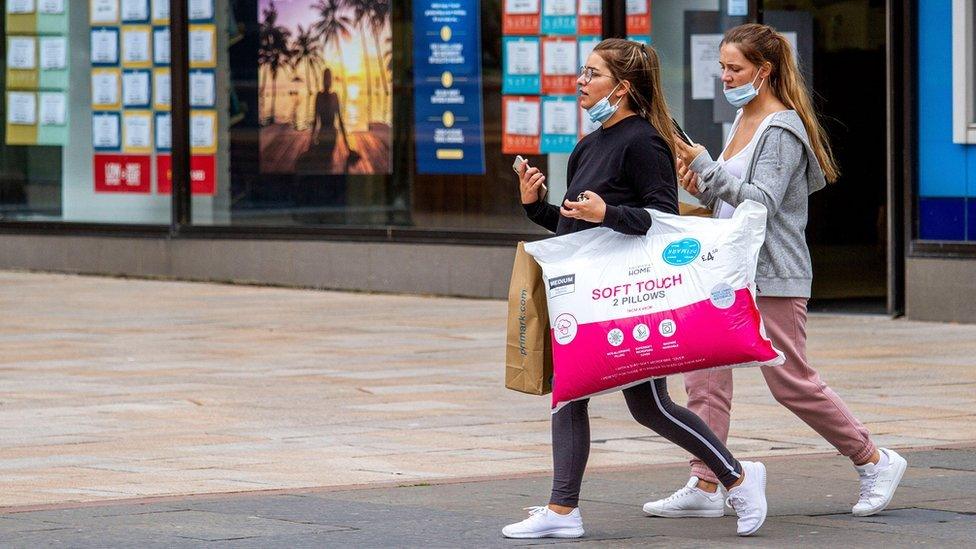Covid: Isolation rules loosened for critical workers
- Published
- comments
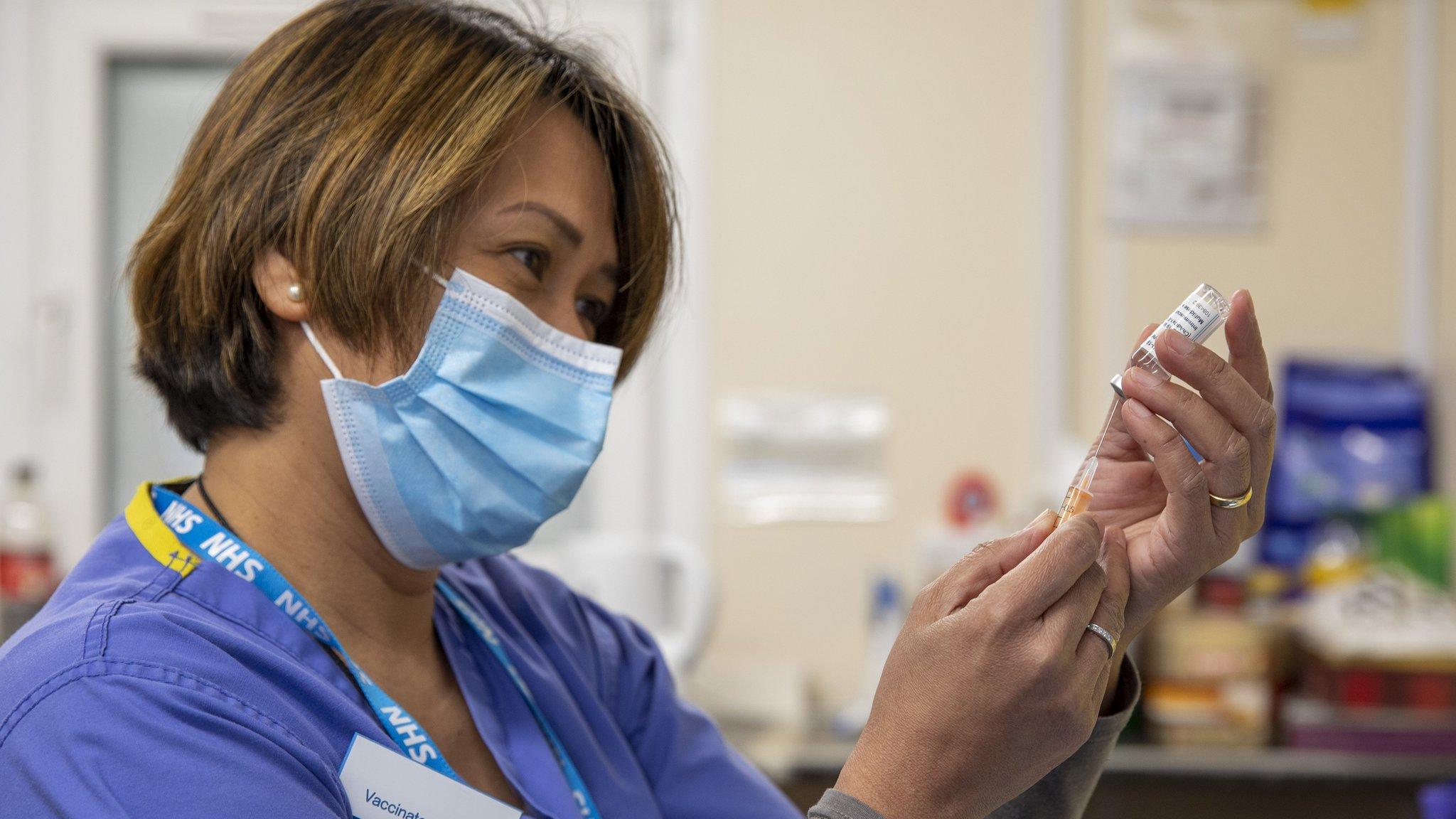
Some fully vaccinated people in critical roles in England will be able to continue working even if told to self-isolate after being in close contact with someone who has Covid.
Instead those eligible - including NHS and care staff - will be able to take daily tests, the government said.
A list of critical workers is due to be published, but the PM said it included food, utility and border staff.
It follows mounting criticism of the impact of self-isolation on industry.
Those eligible will be specifically named on a letter from a government department. "This is not a blanket exemption for any sector or role," a government spokesman said.
The new rule is limited to those without Covid symptoms and was announced as most remaining curbs in England ended on Monday, including face mask laws.
Meanwhile, a further 39,950 cases were recorded on Monday alongside another 19 deaths within 28 days of a positive test.
Prime Minister Boris Johnson told a news conference that test, trace and isolate was still an "essential" part of the government's Covid response.
He said close contacts of positive cases were five times more likely to contract Covid and that a "continuing sacrifice" would be required.
Speaking while isolating at his country residence, Mr Johnson said workers involved in the supply of food, water and electricity, as well as staff on the border and on the railways, would be among those exempt from self-isolation.
But he said this would be for work purposes only and involve a "very, very small number of named critical workers" with employers contacted by letter.
He added that the government did not want to "extend it too widely because this is one of the few shots we've got left in our locker to stop the chain reaction of the spread of Covid".
Although it was unclear exactly which jobs would be eligible, vaccines minister Nadhim Zahawi earlier confirmed the change would apply to health and social care workers in England.
In Scotland, NHS staff will shortly receive similar guidance on self-isolation, deputy chief medical officer Dr Dave Caesar said.
It came as Mr Zahawi confirmed a limited group of children, many with underlying conditions, would be eligible for the Pfizer-BioNTech vaccine as soon as possible in England.
He also confirmed that proof of full vaccination would be required in "large crowded settings" such as nightclubs from the end of September in England - after all over-18s have had the chance to receive both vaccine doses.
Under current self-isolation rules in England, anyone who is traced as a close contact of a confirmed positive case must isolate for 10 days, whether or not they have received both doses of a vaccine.
An upcoming change from 16 August will mean people who are fully vaccinated will be able to skip isolation by taking a daily Covid test.
Under-18s will also no longer be required to self-isolate from 16 August if they are contact traced.
Similar rules are due to come into force in Scotland from 9 August - and in Wales from 7 August.
Mr Johnson, along with Chancellor Rishi Sunak, is self-isolating after being in close contact with Health Secretary Sajid Javid, who tested positive over the weekend after feeling unwell on Friday evening.
The PM appeared at Monday's news conference via video call from Buckinghamshire, alongside England's deputy chief medical officer Prof Jonathan Van-Tam and the UK's chief scientific adviser Sir Patrick Vallance in Downing Street.
Millions isolating
Amid a surge in infections linked to the Delta virus variant, a BBC analysis previously showed more than 4.5 million people could be asked to self-isolate between 7 July and 16 August.
Figures last week showed more than 530,000 contact tracing alerts were sent from the NHS Covid-19 app in England and Wales between 1 July and 7 July.
People can also be told to self-isolate through a separate process run by NHS Test and Trace backed by laws.
Pub chains, supermarkets and other businesses have warned of the crippling effect blanket stay-at-home orders for close contacts were having on their operations.
Theatre impresario Andrew Lloyd-Webber said on Monday that self-isolation rules had forced the cancellation of performances of his new West End show Cinderella.
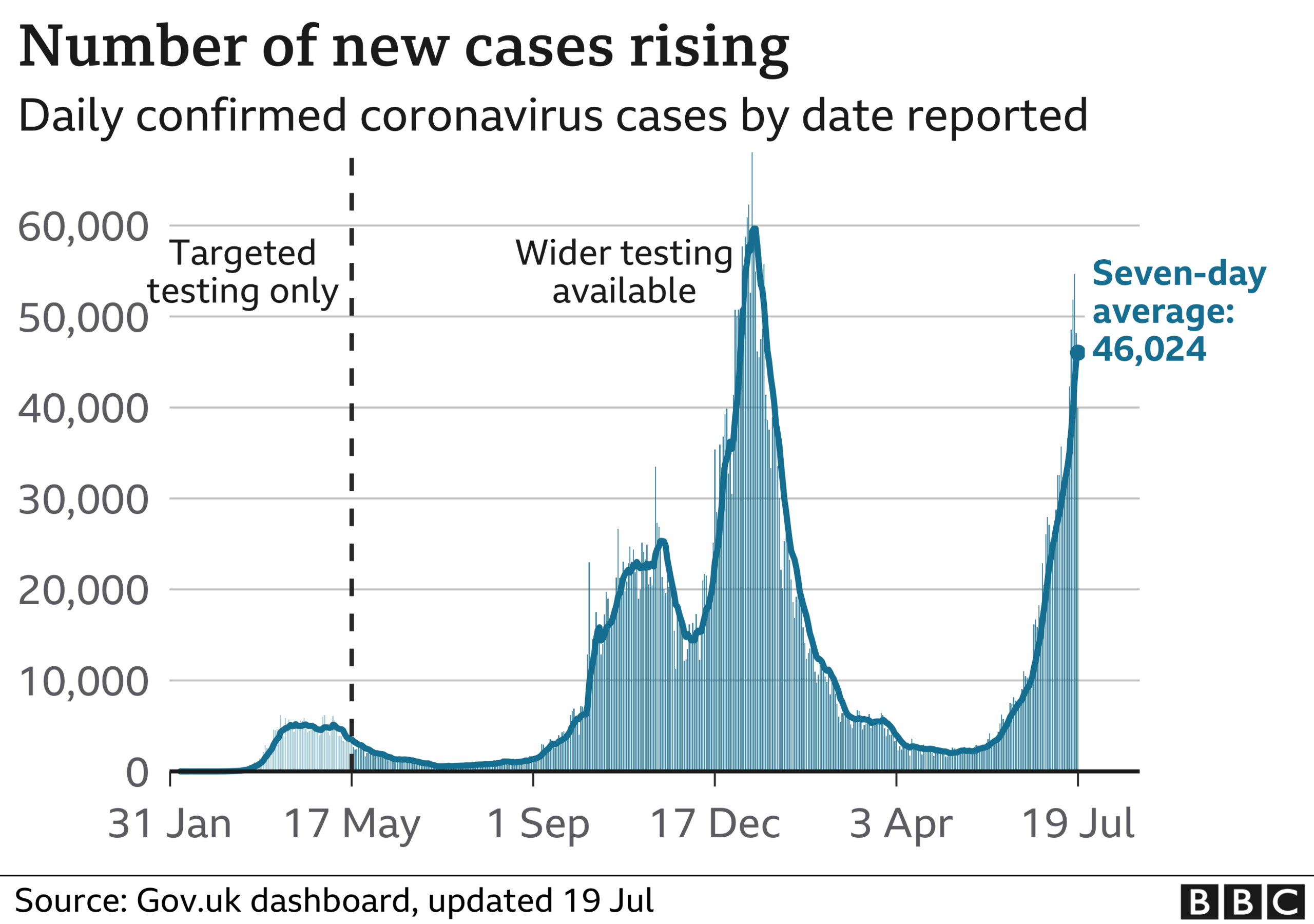

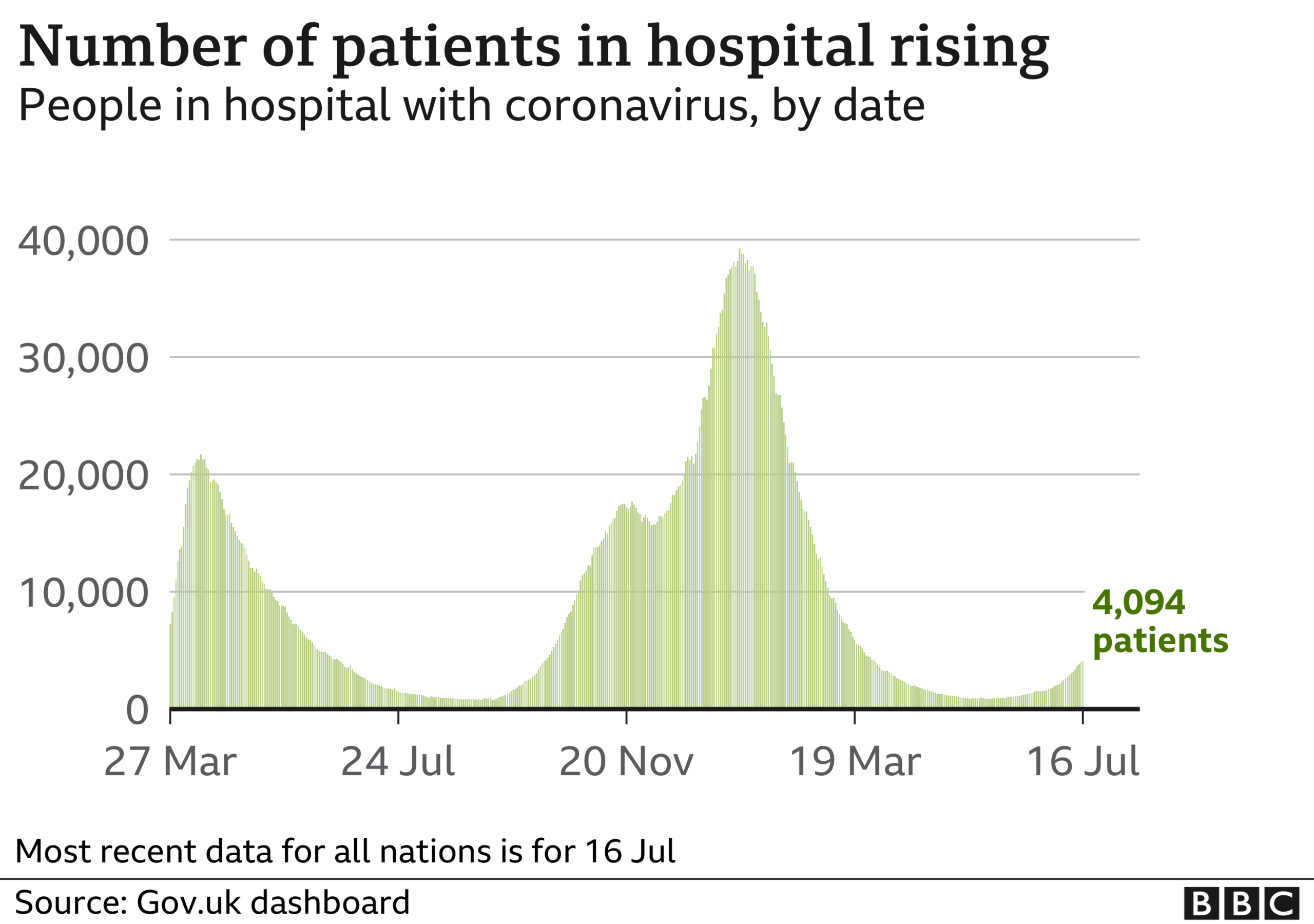

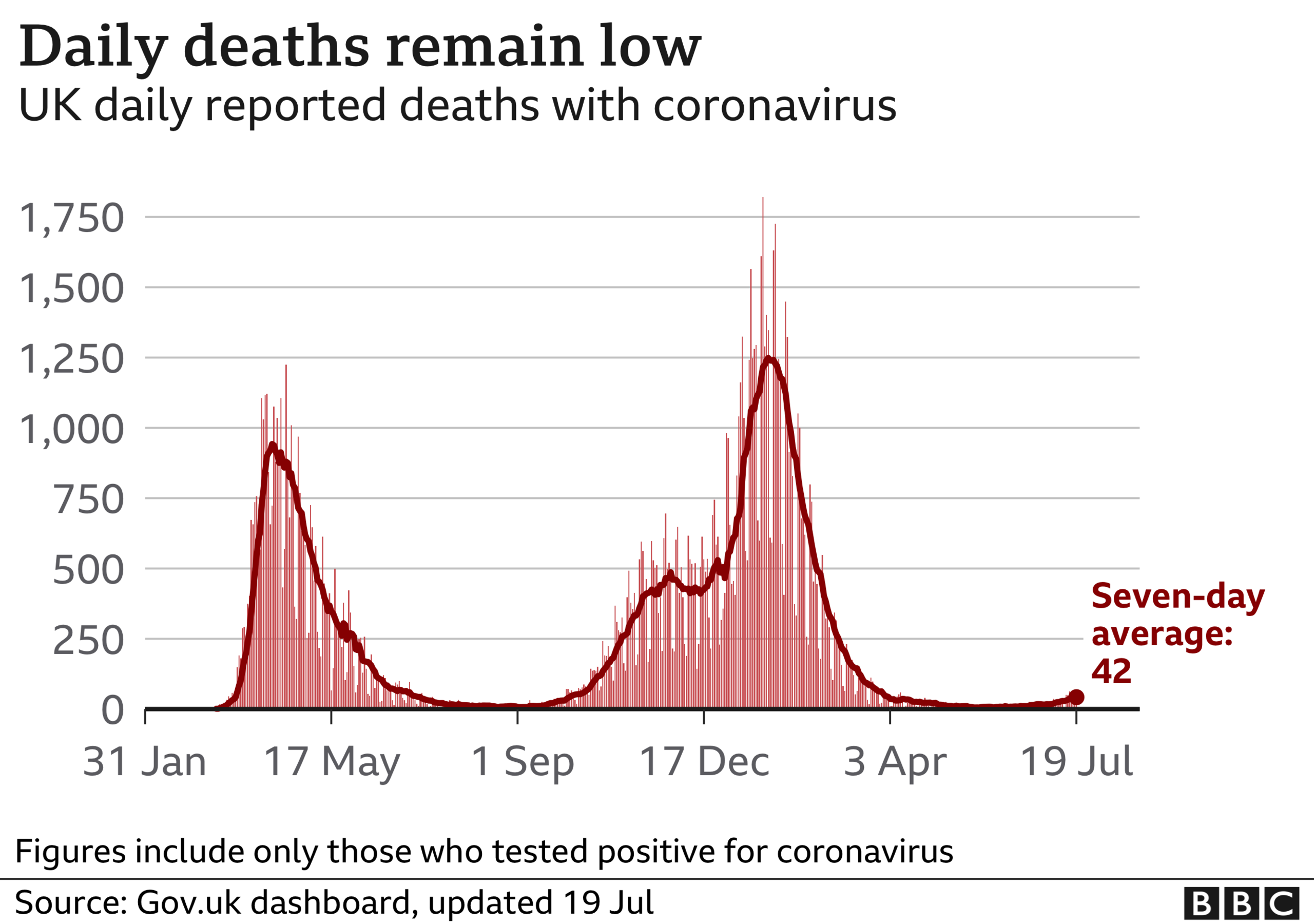

Each UK nation is in charge of its own coronavirus regulations. England ended most of its remaining restrictions on Monday, while Scotland also eased some curbs as it moved to level zero.
Some restrictions were lifted in Wales on Saturday, bringing an end to social-distancing outside. In Northern Ireland, a new Covid-19 certificate app is being prepared for launch next week amid a "final push" to get younger people vaccinated.
The number of daily Covid cases is often lower at the beginning of the week due to reporting delays and a "weekend effect".
The number of patients admitted to hospital with Covid in the last seven days was 39.5% higher than the previous week, government data showed, with 4,317 admissions over the latest period.
The number of deaths in the last seven days was 48% higher than the previous week, with 296 recorded.

OVERCOMING ADVERSITY: The incredible impact sport has had one these men's lives
THE TROUBLE AT WEMBLEY: Ros Atkins traces what happened at the Euro 2020 final

- Published19 July 2021
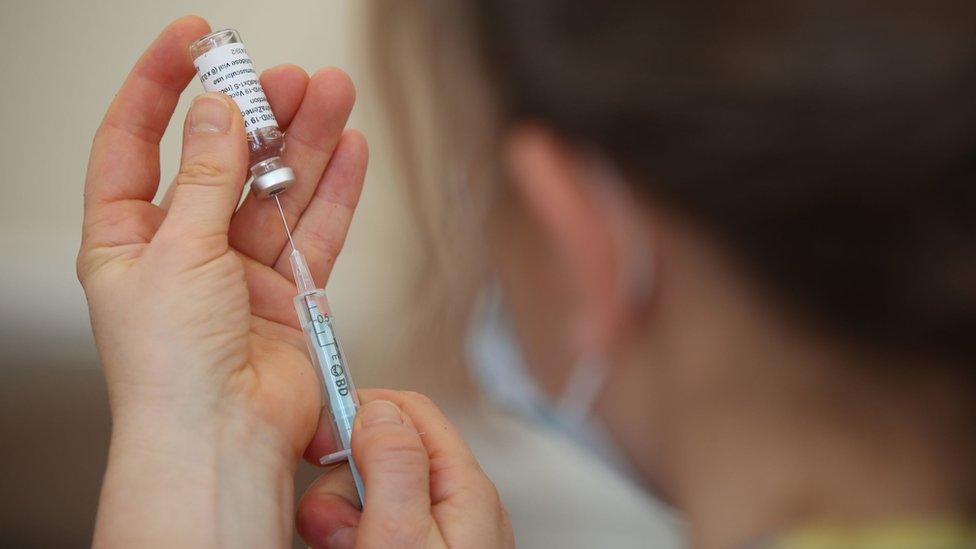
- Published19 July 2021
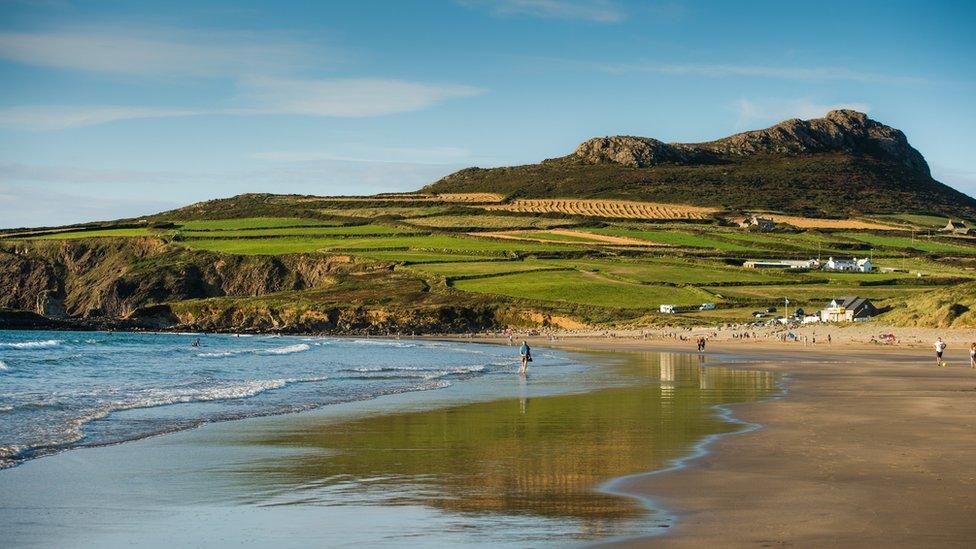
- Published19 July 2021
